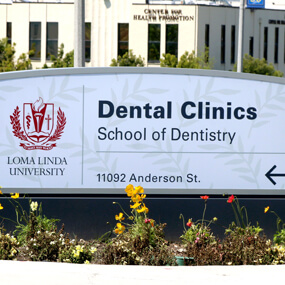How to Deal With a Wisdom Tooth Cavity

Dental cavities are entirely preventable. Despite advancements in dentistry and cavity prevalence being at all-time lows, they are still fairly common. In fact, the CDC found that nearly 32 percent of Americans age 20 to 44 had an untreated cavity between 2013 and 2016. Cavities can occur on any part of the exterior of the teeth and can occur on any tooth, including the third molars—also known as the wisdom teeth.
Cavities Are Possible on Wisdom Teeth?
Yes. A wisdom tooth is just like any other tooth in that way and can be even more problematic. Many people are unaware that you can get cavities on your third molars because they erupt later in life or because they do not have them at all. Research published in the Dental Press Journal of Orthodontics found that dentists recommend extracting wisdom teeth in nearly 60 percent of patients, which is probably why extraction of the third molars is among the most common dental surgeries.
Why Are Third Molar Extractions So Common?
Wisdom teeth are often quite troublesome. These are the last teeth to erupt. This happens between age 17 and 21 for most people, and their other 28 teeth are well-established by that point. Third molars do not appear in around 35 percent of the population, and it is estimated that as many as 85 percent of people do meet the criteria for wisdom teeth to erupt properly and be maintained in good health.
It is not uncommon for a third molar to get stuck in the gum or bone, at which point it is more susceptible to cavities than had it properly erupted. This happens because it is much easier for food to get trapped in the area, and it is more difficult to clean through brushing and flossing. Even the perfect wisdom tooth is more difficult to clean than other teeth due to how far back it is.
What Happens If You Get a Wisdom Tooth Cavity?
If you know you have a wisdom tooth cavity or suspect you do, you should schedule an appointment with your dentist as soon as possible. Procrastination can lead to some very serious complications. Your dentist will assess the tooth and your overall health and make a recommendation based on that.
With any other tooth, a dentist will do everything possible to save the tooth, even if that means root canal therapy, a filling, and a crown. However, with a wisdom tooth, there are other problems to consider, such as impaction. In fact, the Journal of the American Dental Association found that cavities lead to 15 percent of all wisdom tooth extractions. If the wisdom tooth is otherwise in good health and has erupted properly, then your dentist will likely treat it as he or she would any other tooth.
Are Wisdom Teeth Worth Keeping?
Your wisdom teeth are another excellent reason why you should visit your dentist on a proactive basis—about twice a year. If you have enough room for the third molars and they are erupting and finalizing without issue, there is nothing wrong with keeping them. But your dentist can tell fairly early if your third molars will be problematic, and if they will be, there is not a strong argument to keep them.
It is estimated that humans have not needed their third molars for hundreds of thousands of years!
While there is no cause to remove a healthy wisdom tooth, there is not much benefit to keeping a wisdom tooth that may result in pain, cost you money, and affect your other teeth. If you do need a third molar or both of them extracted, there is no need to be anxious. The modern procedure is fast and painless thanks to anesthesia and sedation options, and most people feel little to no pain post-surgery. There may be some mild swelling and discomfort, but that usually lasts no more than three days.
Avoid Troubles With Your Wisdom Teeth
Wisdom teeth can emerge even as an adult, and if you have not seen a dentist regularly, wisdom teeth can be impacted or otherwise prone to cavities. If you are experiencing any discomfort with your molars or can’t remember the last time you visited a dentist, you should schedule an appointment as soon as possible. Jeffrey D. Clark, DDS, welcomes new patients and would be happy to examine your molars as well as your other teeth and gums. Call Scottsdale Cosmetic Dentistry Excellence today at 480 585 1853.




